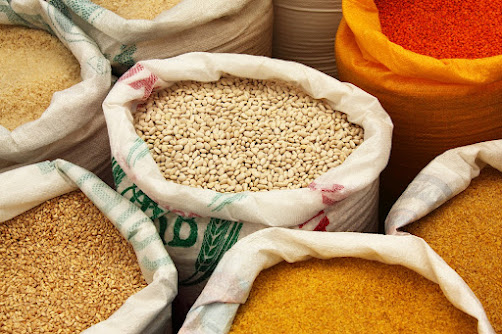India last week prohibited the shipment of non-basmati rice to trading partners, including Canada, due to a bad planting season in June and July.
The United Arab Emirates banned the export of rice on Friday, approximately a week after India severely restricted the sale of non-basmati rice, which had a significant impact on the regional markets of the Gulf nation that imports 90% of its food.
According to Reuters, the Indian government released the warning last Thursday, noting that a delayed seasonal start to the monsoon rains damaged crops and raised concerns about a production shortage in the nation.
All non-basmati rice is affected by the blanket prohibition, including short- and medium-grain varieties including Sona Masoori, Jeera Samba, and Matta.
According to experts, the prohibition caused some Canadians to panic buy, which may have increased the cost of rice varieties not subject to the ban.
In Canada, there haven't been many tales of rice flying off the shelves owing to the restriction, but in the U.S., scenes of people scaling shelves to get backstock products and fighting over rice have been reported.
According to Rice of India, a company that ships basmati rice around the world, there are more than 10,000 different types of rice in India, although basmati only accounts for roughly 1% of the country's total production.
Owner of Namaste Indian Supermarket in Mississauga, Ontario, Manish Limbachiya, claimed he had to limit sales of specific varieties of rice in order to stop panic buying.
Due to the restriction, Limbachiya claims to have some rice in stock, but "not too much."
Right now, Soona Masoori rice and Idly rice are both prohibited and may be found in Limbachiya's shop.
According to one economist, a single bad growing season shouldn't send consumers into a panic, but in a post-pandemic environment, many people start stockpiling when output shortfalls are a possibility.
According to Chowdhury, attitudes changed when there was a shortage of particular items during the epidemic, such as when individuals stocked up on toilet paper out of concern that they wouldn't be able to buy more when they ran out.
According to data from Statistics Canada, Canada cultivates wild rice in the Prairies, Ontario, and Maritimes and sells some of its goods to the United States, Germany, China, and Taiwan.
According to StatCan data, India is one of the biggest exporters of non-basmati rice, giving Canadians just under $3 million worth of the commodity between January and May of this year alone.
This is roughly 6.3% of the total amount of rice imported by Canada. Other significant suppliers include the United States, Taiwan, and Thailand, which provides more rice to Canada than India does.
But according to Chowdhury, people don't like to change their routines or brands, and they might be accumulating because they have a taste for a certain brand of Indian non-basmati rice.
Rice is grown twice a year in India, with the current summer crop producing less due to weather. According to Reuters, a different crop is gathered in the autumn.
According to Chowdhury, this second harvest may hold the secret to ending the shortages.
Experts worry that the price of basmati rice may increase if non-basmati rice becomes scarce.
However, Sylvain Charlebois, a professor at Dalhousie University and the head of the school's Agri-Food Analytics Lab, claims that so far, there has been no effect of India's rice ban on the markets.
Charlebois contrasted Russia's cancellation of the Black Sea grain agreement to India's restriction on rice, claiming that both actions had minimal effect on the markets.
Charlebois asserted that per-person restrictions put in place by shops can assist prevent stockpiling, which is "the worst thing for everyone."
sources:
https://www.ctvnews.ca/business/do-not-panic-buy-here-s-what-india-s-rice-ban-means-for-canada-1.6501124
https://www.al-monitor.com/originals/2023/07/uae-rice-ban-after-major-exporter-india-spikes-global-supply-fears
https://abcnews.go.com/US/wireStory/india-cuts-rice-exports-triggering-panic-buying-food-101818709



